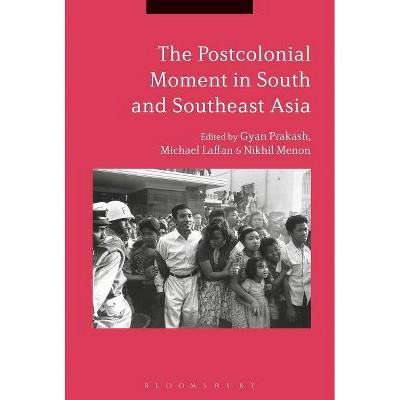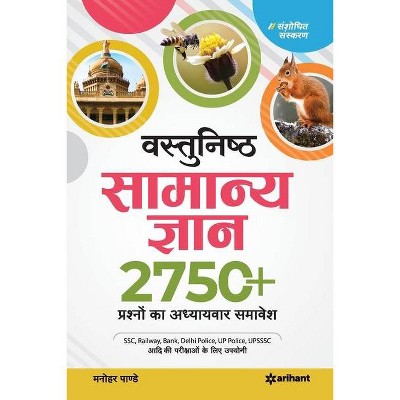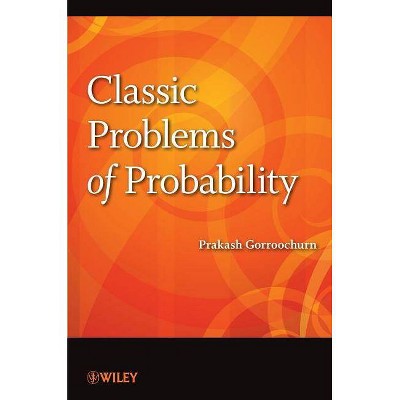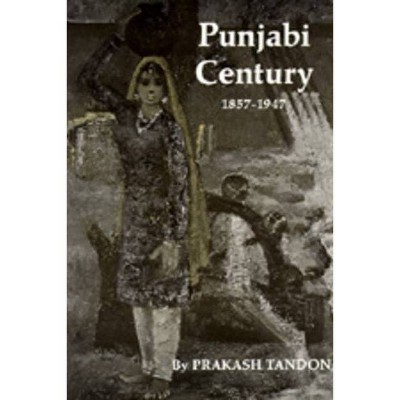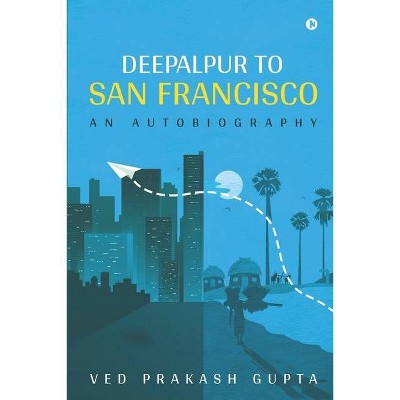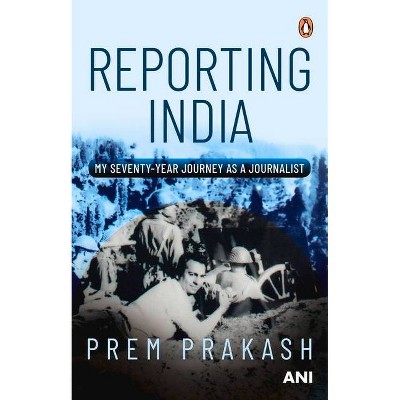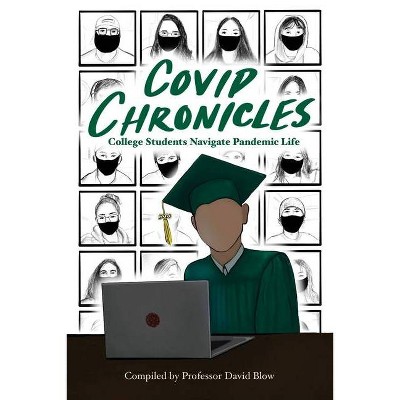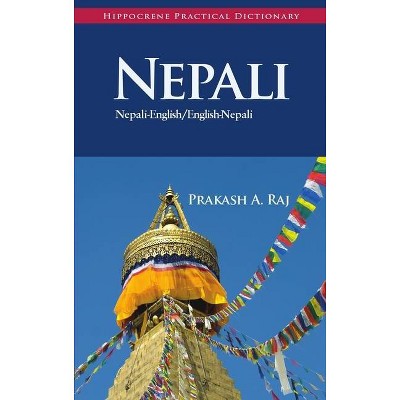Emergency Chronicles - by Gyan Prakash (Paperback)
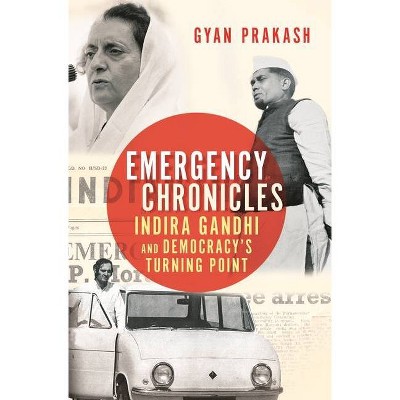
Similar Products
Products of same category from the store
AllProduct info
<p/><br></br><p><b> Book Synopsis </b></p></br></br><p><b>The gripping story of an explosive turning point in the history of modern India</b> <p/>On the night of June 25, 1975, Indira Gandhi declared a state of emergency in India, suspending constitutional rights and rounding up her political opponents in midnight raids across the country. In the twenty-one harrowing months that followed, her regime unleashed a brutal campaign of coercion and intimidation, arresting and torturing people by the tens of thousands, razing slums, and imposing compulsory sterilization on the poor. <i>Emergency Chronicles</i> provides the first comprehensive account of this understudied episode in India's modern history. Gyan Prakash strips away the comfortable myth that the Emergency was an isolated event brought on solely by Gandhi's desire to cling to power, arguing that it was as much the product of Indian democracy's troubled relationship with popular politics. <p/>Drawing on archival records, private papers and letters, published sources, film and literary materials, and interviews with victims and perpetrators, Prakash traces the Emergency's origins to the moment of India's independence in 1947, revealing how the unfulfilled promise of democratic transformation upset the fine balance between state power and civil rights. He vividly depicts the unfolding of a political crisis that culminated in widespread popular unrest, which Gandhi sought to crush by paradoxically using the law to suspend lawful rights. Her failure to preserve the existing political order had lasting and unforeseen repercussions, opening the door for caste politics and Hindu nationalism. <p/>Placing the Emergency within the broader global history of democracy, this gripping book offers invaluable lessons for us today as the world once again confronts the dangers of rising authoritarianism and populist nationalism.</p><p/><br></br><p><b> Review Quotes </b></p></br></br><br>[Prakash] puts Emergency in perspective.<b>---Sandeep Sinha, <i>The Tribune</i></b><br><br>A meticulously researched book which is likely to find a space in the book shelves of scholars and observers of Indian politics.<b>---Ayan Guha, <i>Democratization</i></b><br><br>Gyan Prakash's excellent study . . . offers a genuinely riveting account of the decades leading up to the imposition of the emergency.<b>---Priyamvada Gopal, <i>Times Higher Education</i></b><br><br>Reading <i>Emergency Chronicles</i> is like entering a beautiful superstructure of ideas created with lucid writing and incisive arguments with a sprinkling of historical anecdotes.<b>---Utpal Kumar, <i>Sunday Guardian</i></b><br><br>The chronicles themselves are fluently and persuasively recounted as a narrative history of the awful excesses inflicted on individuals and communities by and during the Emergency.<b>---Mani Shankar Aiyar, <i>Indian Express</i></b><br><br>What sets [<i>Emergency Chronicles</i>] apart is [Prakash's] effort to take back the cause-and-effect chain right up to the debates in the Constituent Assembly where 'draconian' measures were enshrined in the constitution.<b>---Siddharth Singh, <i>Open Magazine</i></b><br><br><i>Emergency Chronicles</i> is perhaps the most comprehensive scholarly examination yet of the Emergency. Looking back more than four decades after Indira Gandhi stunned India and the world by suspending demo-cracy, historian Gyan Prakash argues forcefully that this was no momentary distortion in India's democratic record or a nightmare that came from nowhere and vanished without a trace, leaving only its villains and heroes.<b>---Ajoy Bose, <i>India Today</i></b><br><br>[An] acute analysis of the sudden collapse of democracy in India in the mid-1970s.<b>---Pankaj Mishra, <i>New York Review of Books</i></b><br><br>A valuable work.<b>---Ben Margulies, <i>LSE Review of Books</i></b><br><br>Gyan Prakash's <i>Emergency Chronicles</i> is perhaps the first work of historical scholarship on the subject, and Prakash, who is a historian at Princeton University, has deftly dealt with the subject, not only bringing out the larger historical context, but also peppering his narrative with some good fictional work and cinema produced during the times.-- "Financial Express"<br><br>Gyan Prakash's outstanding new book is the first historical narrative of one of the most important crises of democracy in the modern world. . . . The meticulous detail of <i>Emergency Chronicles</i> exposes a shameful chapter in India's democratic history.<b>---Rana Mitter, <i>Financial Times</i></b><br><br>Prakash has written a valuable work, which embodies important lessons and certainly speaks to contemporary issues. <i>Emergency Chronicles </i>reminds us that the horrors of our histories do not emerge from the clear blue sky, but from long traditions of (mis)rule. The book also warns us that democracy is a game played by equals - or else a rigged game, where someone is always threatening to take the ball and go home.<b>---Ben Margulies, <i>Democratic Audit UK</i></b><br><br>Prakash manages to tell the tale with the charm of a raconteur, and this should make it easy for generations of readers born long after 1975 to get a vivid, sepia-tinted picture of socialist India as well as the nationwide public unrest of those years.<b>---Parsa V. Rao Jr., <i>Gateway House</i></b><br><p/><br></br><p><b> About the Author </b></p></br></br><b>Gyan Prakash</b> is the Dayton-Stockton Professor of History at Princeton University. His many books include <i>Mumbai Fables: A History of an Enchanted City</i> (Princeton), <i>Bonded Histories: Genealogies of Labor Servitude in Colonial India</i>, and <i>Another Reason: Science and the Imagination of Modern India</i> (Princeton). He lives in Princeton, New Jersey.
Price History
Price Archive shows prices from various stores, lets you see history and find the cheapest. There is no actual sale on the website. For all support, inquiry and suggestion messages communication@pricearchive.us
